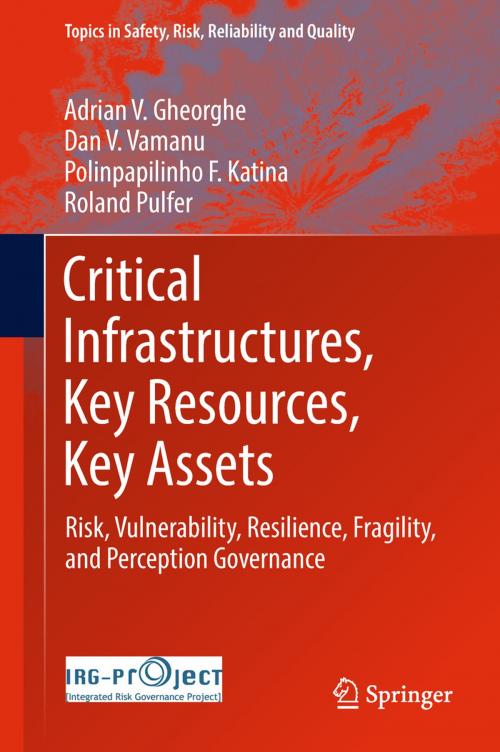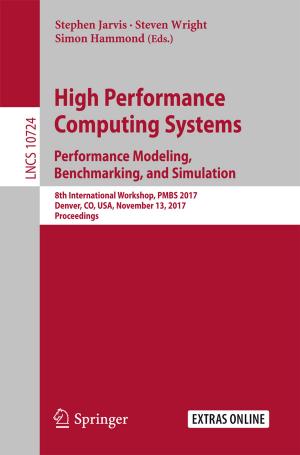Critical Infrastructures, Key Resources, Key Assets
Risk, Vulnerability, Resilience, Fragility, and Perception Governance
Nonfiction, Science & Nature, Technology, Quality Control, Computers, Advanced Computing, Computer Science| Author: | Roland Pulfer, Polinpapilinho F. Katina, Dan V. Vamanu, Adrian V. Gheorghe | ISBN: | 9783319692241 |
| Publisher: | Springer International Publishing | Publication: | November 12, 2017 |
| Imprint: | Springer | Language: | English |
| Author: | Roland Pulfer, Polinpapilinho F. Katina, Dan V. Vamanu, Adrian V. Gheorghe |
| ISBN: | 9783319692241 |
| Publisher: | Springer International Publishing |
| Publication: | November 12, 2017 |
| Imprint: | Springer |
| Language: | English |
In the face of increasing failures, comments attributed to Albert Einstein loom large: “We cannot solve our problems with the same thinking we used when we created them.” There is a pervasive feeling that any attempt to make sense of the current terrain of complex systems must involve thinking outside the box and originating unconventional approaches that integrate organizational, managerial, social, political, cultural, and human aspects and their interactions.
This textbook offers research-based models and tools for diagnosing and predicting the behavior of complex techno-socio-economic systems in the domain of critical infrastructures, key resources, key assets and the open bazaar of space, undersea, and below-ground systems. These models exemplify emblematic models in physics, within which the critical infrastructures, as well as society itself and its paraphernalia, share the profile of many-body systems featuring cooperative phenomena and phase transitions – the latter usually felt as disruptive occurrences.
The book and its models focus on the analytics of real-life-business actors, including policy-makers, financiers and insurers, industry managers, and emergency responders.
In the face of increasing failures, comments attributed to Albert Einstein loom large: “We cannot solve our problems with the same thinking we used when we created them.” There is a pervasive feeling that any attempt to make sense of the current terrain of complex systems must involve thinking outside the box and originating unconventional approaches that integrate organizational, managerial, social, political, cultural, and human aspects and their interactions.
This textbook offers research-based models and tools for diagnosing and predicting the behavior of complex techno-socio-economic systems in the domain of critical infrastructures, key resources, key assets and the open bazaar of space, undersea, and below-ground systems. These models exemplify emblematic models in physics, within which the critical infrastructures, as well as society itself and its paraphernalia, share the profile of many-body systems featuring cooperative phenomena and phase transitions – the latter usually felt as disruptive occurrences.
The book and its models focus on the analytics of real-life-business actors, including policy-makers, financiers and insurers, industry managers, and emergency responders.















